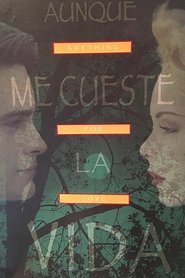Best Drama TV Series - Page 72
-
Living Memories
2013
star 7The story of families haunted, despite themselves, by a past that has not died. -
P-Valley
2020
star 7.7Down deep in the Mississippi Delta, Trap music meets film noir in this kaleidoscopic story of a little-strip-club-that-could and the big characters who come through its doors—the hopeful, the lost, the broken, the ballers, the beautiful, and the damned. -
Valeria
2020
star 7.4A writer in a creative and marital crisis finds refuge and support in her three best friends. Based on the novels by Elisabet Benavent. -
El amor no tiene receta
2024
star 7.6Paz Roble, a kind, hard-working and honest woman from whom her husband, Fermín, takes her newborn daughter. Fermín has a large debt with some lenders and to pay it he decides to sell his daughter to Mauro Nicoliti. This plagiarism is orchestrated by Geneva, Mauro's adoptive sister. She lost her first-born daughter in childbirth and does everything to replace her dead daughter and keep her husband's fortune. On the other hand, Esteban Villa de Cortés loses his wife and becomes a widower with his three children. Elvira Moncada, Esteban's mother-in-law, holds him responsible for the death of her daughter. After a series of unexpected events, Esteban and Paz meet in the neighborhood where she lives with her family. The chemistry and great understanding that exists between them makes it inevitable that they will fall in love. -
Buena Familia
2015
Buena Familia
2015
-
Boogie Oogie
2014
star 7.8In the swing of the 70s, two women fight for the love of the same man without knowing their fates were already intertwined. -
Shake It Up
2010
star 7.6Best pals CeCe and Rocky dream of dancing stardom. And they seem on the verge of realizing that goal when they win places as backup dancers on the local TV show "Shake It Up, Chicago." While they get to show off their moves, they find out they need to keep putting their best feet forward to keep up with the rest of the crew on the show. -
Pure in Heart
2006
star 5Yang Gook-hwa (Korean: 양 국화) is a nineteen-year-old country girl who leaves Yanbian and travels to Seoul because she is marrying Hong Soon-goo (Korean: 홍 순구), the third son in an average but respectable family. When she arrives in Seoul, however, she finds out that her fiancé has just died in a terrible car accident. Instead of returning to Yanbian, she decides to stay and create a new life in Korea while sending money back to her aunt and uncle. -
The Steve Wilkos Show
2007
star 5.9The Steve Wilkos Show is a syndicated American tabloid talk show hosted by Steve Wilkos. The show debuted on September 10, 2007, two months after Wilkos' departure as director of security on The Jerry Springer Show. -
Teppan
2010
star 8Teppan is a Japanese television drama that aired on NHK in 2010–2011. It was the 83rd Asadora. It starred a new actress, Miori Takimoto, in the role of a young woman raised by an adopted family in Onomichi who learns of her real grandmother and decides to move to Osaka to start an okonomiyaki restaurant. The title word "teppan" refers to the metal surface on which okonomiyaki are cooked. The series, while interrupted by the Tohoku Earthquake, averaged a 17.2% rating, making it the fourth most popular of the Asadora dramas in the previous five years. -
Contra Viento y Marea
1997
Contra Viento y Marea is a Venezuelan telenovela that was produced by and seen on Venevisión. This telenovela lasted 125 episodes and was distributed internationally by Venevisión International. -
Down with the Beautiful
2007
star 7.7Al Diablo con los Guapos or is a Mexican telenovela produced by Angelli Nesma Medina for Televisa. It is a remake of Argentinian telenovela Muñeca Brava. Allison Lozz and Eugenio Siller starred as the protagonists, while Cesar Evora and Laura Flores starred as the antagonists. From October 8, 2007 to June 6, 2008, Canal de las Estrellas broadcast Al diablo con los guapos. From January 21 to September 19, 2008, Univision broadcast Al diablo con los guapos. -
Aunque me Cueste la Vida
1998
Aunque me Cueste la Vida is a 1998 Venezuelan telenovela produced by Radio Caracas Televisión. It was written by José Simón Escalona, Salvador Garmendia, and Martin Hahn and directed by Olegario Barrera. This telenovela runs 126 episodes and is distributed internationally by RCTV International. -
Suzuran
1999
star 8.5In 1924, a time when both steam engine trains and early Showa Era's first train stations are just beginning. In the waiting room of Asumoe Station, a small country station, a passenger finds an abandoned baby and rushes to tell the station master, Tokiwa Jiro. The news quickly spreads and soon friends of Tokiwa's along with other townsfolk are saying that this baby must be a gift, it is Tokiwa's recently departed beloved wife reborn as a baby. -
Maria Clara and Ibarra
2022
star 7.2Klay, a Gen Z nursing student who wakes up and finds herself in the world of Jose Rizal’s novels Noli Me Tangere and El Filibusterismo. -
Amor de nadie
1990
Amor de nadie
1990
-
The Heiress
2018
star 5.6The story of Romina, a secretary turned wife of business tycoon, Robert, who married her despite the fact that she was raped and is carrying the child of the assailant. Unknown to Romina, it was Daniela, Robert’s daughter, who had orchestrated her abduction, right before seducing Romina’s fiance, Carlos. With Romina's and Daniela's lives intertwined, their daughters, Cassandra and Margaret, are made to fight as to who among them is the rightful heiress to the Mondragon empire. -
De Oro Puro
1994
De Oro Puro
1994
De Oro Puro is a Venezuelan telenovela that was produced by and seen on Venezuela's Radio Caracas Televisión. Julio Cesar Mármol came up with the idea for De Oro Puro. José Antonio Mendez was the general producer, Jhonny Pulido was the executive producer, and Rafael Suarez was the director. De Oro Puro lasted 113 episodes and was distributed internationally by RCTV International. De Oro Puro is better known for having been a notorious flop in the history of Venezuelan television, which was worsened by being broadcast in the same time slot that was previously occupied by the very popular and long lasting Por Estas Calles. Despite the production values and the big names behind the series, the public became confused by the complicated plot and storyline, and the ratings were poor. It has been postulated that De Oro Puro contributed to the downfall of RCTV in late 1990s. RCTV publicised De Oro Puro, in an effort to attract viewers, but these efforts failed. When the plot become more confusing and -
Piel de otoño
2005
star 7.3Piel de otoño is a Mexican telenovela that was produced by Televisa and broadcast on El Canal de las Estrellas in Mexico from 9 May 2005 through 23 September 2005 in Mexico, and from October 10, 2005, through February 17, 2005, in the United States. Starring Laura Flores and René Strickler as the series' protagonists, the show tells the story of Lucía Villarreal de Mendoza, a woman who seeks refuge from her husband and children's abuses in the friendship of a stranger on the Internet, who signs his messages only as "wind". Piel de otoño is a remake of the 1986 Televisa telenovela Cicatrices del alma. The program aired weekdays at 5 pm for twenty weeks.

















